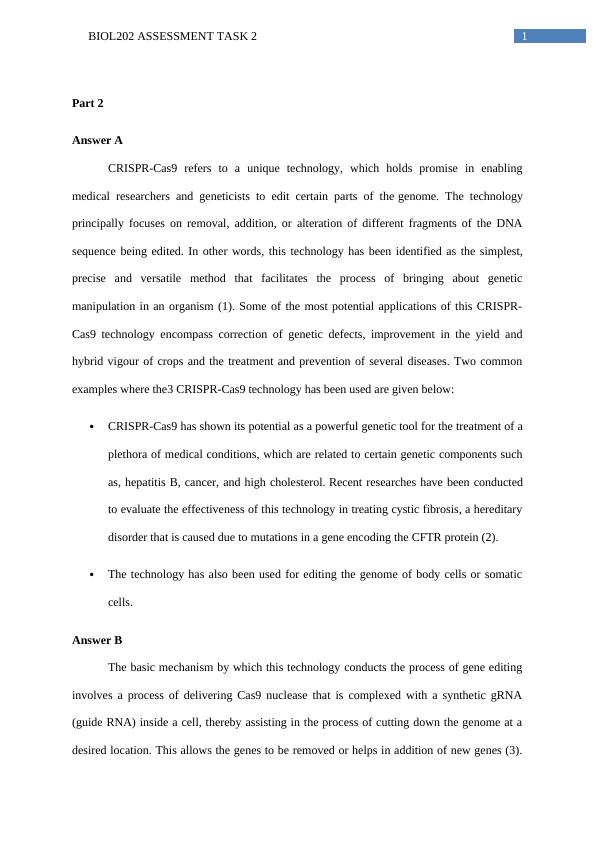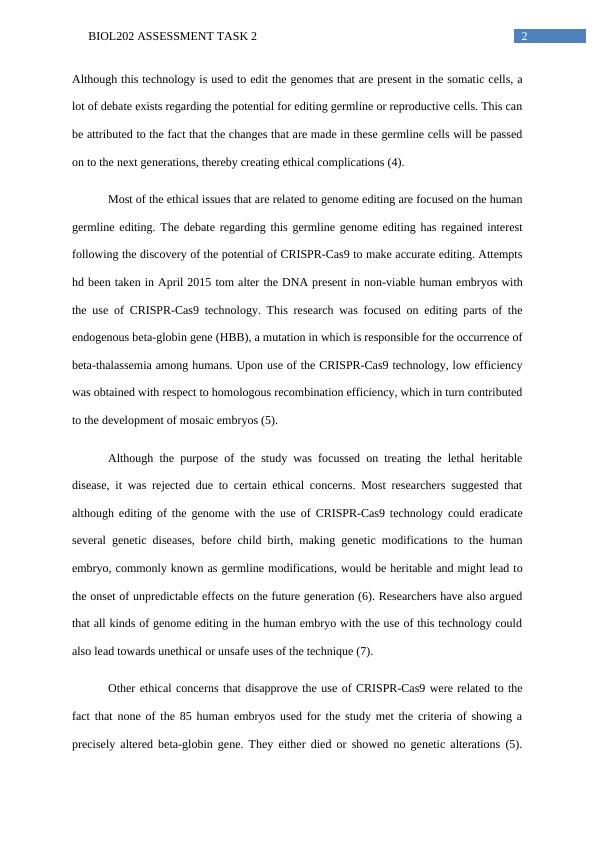Genetic Techniques and Ethical Considerations
7 Pages1867 Words396 Views
Added on 2023-06-11
About This Document
This article discusses CRISPR-Cas9 technology and its potential applications in genetic manipulation. It also highlights the ethical concerns related to germline editing and the risks associated with CRISPR-Cas9 technology. The article provides references to support the discussion.
Genetic Techniques and Ethical Considerations
Added on 2023-06-11
ShareRelated Documents
End of preview
Want to access all the pages? Upload your documents or become a member.
Ethics in Bioengineering
|13
|3424
|299
CRISPR cas9 in Genome Editing
|13
|3614
|43
CRISPR Gene Editing
|9
|1979
|467
(PDF) Designer Babies CRISPR
|21
|5669
|192
CRISPR Gene Editing Research in Genetics
|16
|4555
|199
Assignment about Importance of Biology
|4
|613
|24



